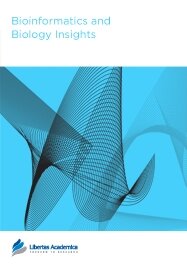

Publication Date: 12 Dec 2010
Type: Original Research
Journal: Bioinformatics and Biology Insights
Citation: Bioinformatics and Biology Insights 2010:4 137-146
doi: 10.4137/BBI.S6247

Motivation: Despite more than two decades of research, HIV resistance to drugs remains a serious obstacle in developing efficient AIDS treatments. Several computational methods have been developed to predict resistance level from the sequence of viral proteins such as reverse transcriptase (RT) or protease. These methods, while powerful and accurate, give very little insight into the molecular interactions that underly acquisition of drug resistance/hypersusceptibility. Here, we attempt at filling this gap by using our Monte Carlo feature selection and interdependency discovery method (MCFS-ID) to elucidate molecular interaction networks that characterize viral strains with altered drug resistance levels.
Results: We analyzed a number of HIV-1 RT sequences annotated with drug resistance level using the MCFS-ID method. This let us expound interdependency networks that characterize change of drug resistance to six selected RT inhibitors: Abacavir, Lamivudine, Stavudine, Zidovudine, Tenofovir and Nevirapine. The networks consider interdependencies at the level of physicochemical properties of mutating amino acids, eg,: polarity. We mapped each network on the 3D structure of RT in attempt to understand the molecular meaning of interacting pairs. The discovered interactions describe several known drug resistance mechanisms and, importantly, some previously unidentified ones. Our approach can be easily applied to a whole range of problems from the domain of protein engineering.
Availability: A portable Java implementation of our MCFS-ID method is freely available for academic users and can be obtained at: http://www.ipipan.eu/staff/m.draminski/software.htm.
PDF (1.52 MB PDF FORMAT)
RIS citation (ENDNOTE, REFERENCE MANAGER, PROCITE, REFWORKS)
BibTex citation (BIBDESK, LATEX)
XML
PMC HTML
The publication of our paper in Bioinformatics and Biology Insights was highly professional and very pleasant on all levels: the guidelines for authors are concise, the online submission system is user-friendly, the comments from the reviewers were insightful and improved our paper, and the preparation of the manuscript for publication was efficient. I particularly liked the fast feedback from the staff on the state of the submission and review process.

All authors are surveyed after their articles are published. Authors are asked to rate their experience in a variety of areas, and their responses help us to monitor our performance. Presented here are their responses in some key areas. No 'poor' or 'very poor' responses were received; these are represented in the 'other' category.See Our Results
Copyright © 2013 Libertas Academica Ltd (except open access articles and accompanying metadata and supplementary files.)
Facebook Google+ Twitter
Pinterest Tumblr YouTube